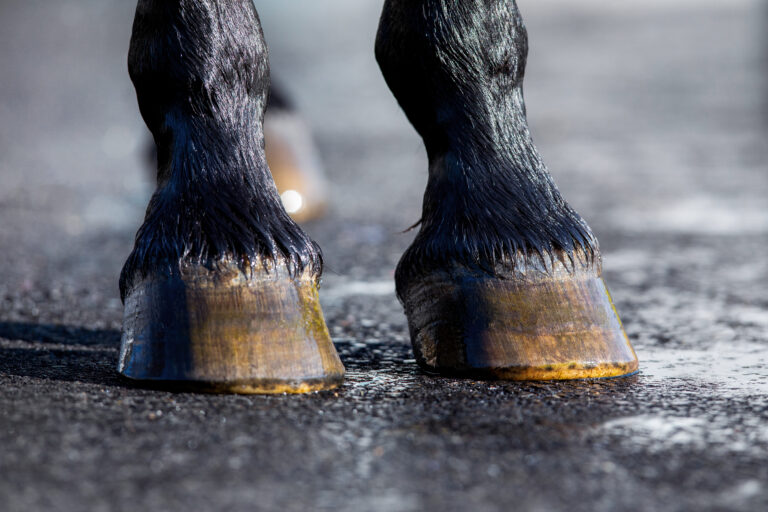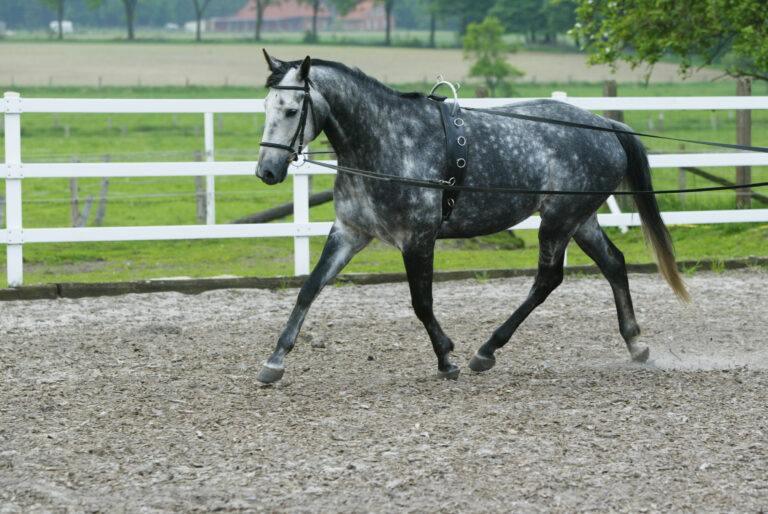
At a February 2025 Gluck Equine Research educational seminar, Feng Li, DVM, PhD, professor at the University of Kentucky’s Department of Veterinary Science, discussed the latest developments in avian influenza A (H5N1) surveillance for horses in the United States.
Concerns About H5N1 Infection in Horses
Li noted that horses commonly share spaces with cattle, poultry, cats, and other domestic pets, creating the possibility for contagion between species. At this time, H5N1 is spreading from wild birds to cats, poultry, and cattle. Cattle can spread the virus to poultry, cats, and humans, and poultry is also known to spread it to humans.
A prior study based in Mongolia that evaluated equine influenza A from 2021-2023 reported that “horses are susceptible to H5N1 infection, and spillover might occur.” Of 2,160 horses tested for H5 antibodies, nine (0.4%) were positive for antibodies while eight (0.4%) were doubtful. The low prevalence indicates no transmission so far between horses.
H5N1 Surveillance Strategies for Horses
Today, the equine influenza A virus H3N8 is the main subtype circulating among horses; this strain was first identified in 1963. (Equine influenza A virus subtype H7N7 is extinct.) One objective of the current surveillance model for horses is to assess immune responses elicited through available equine H3N8 vaccines or natural infection with endemic strains of H3N8 and see if these exposures can offer some cross-protection against H5N1.
Surveillance strategies are actively trying to detect specific antigens and antibodies against subtypes of equine influenza virus (EIV) through a diagnostic algorithm with rapid results. For instance, nucleoprotein (NP) antigen (type-specific) can detect antibodies against any subtype of influenza A virus. The hemagglutinin (HA) antigen is subtype-specific in most (functional) assays that measure antibodies against a specific subtype of influenza A virus (H1-H18 subtypes). Functional antibody assays use both hemagglutination-inhibition (HI) and serum neutralization (SN) testing of antibodies.
Cases of EIV have been increasing in the United States from 2024-2025, said Li, with 199 confirmed cases in 2024. Testing continues on confirmed cases of pan-flu A that tested positive with PCR but without subtyping. In a cohort of 457 equine serum samples from Kentucky and Ohio, all were negative for H5 antibodies. Another 367 serum samples, mostly from California and Kentucky, are being evaluated for H5 antibodies. Li said that by spring 2025, roughly 3,500 samples will undergo surveillance; these samples will primarily come from horses in California, Illinois, Indiana, Kentucky, Kansas, Nebraska, Ohio, Oklahoma, and Texas—areas that correlate with major bird flyways across the U.S.
Final Thoughts
In conclusion, Li reported: “Etiological and serological investigations of horse swabs and serum samples reveal no evidence of H5N1 spillover in horses studied thus far.”
Related Reading
- Spring Signals a Rise in Equine Influenza
- The Future of Equine Infectious Diseases in a Changing Climate
- Researchers Identify Potential New Transmission Method for West Nile Virus
Stay in the know! Sign up for EquiManagement’s FREE weekly newsletters to get the latest equine research, disease alerts, and vet practice updates delivered straight to your inbox.




